Both singles finals of the 2019 All England Open were about two players facing their nemesis. While one fought hard and emerged triumphant the other succumbed to his inner demons yet again.
By Bikash Mohapatra. Photos: Badmintonphoto
Coming into the 2019 All England Open final, Chen Yufei had never beaten Tai Tzu-Ying. It was 11 straight defeats in under two years for the Hangzhou native, against the world #1 from Chinese Taipei. Chen had indeed taken Tai to the distance the last three times they squared up. She however, found it tough to cross the line.
It wasn’t as if Tai was only Chen’s nemesis. More than half a dozen other major players consider the Kaohsiung native their bête noire, and with good reason. For a good part of the last three years, Tai has been the most dominant and consistent woman on the circuit, reaching 19 finals and winning 14 of them. More importantly, and more often than not, many players have trouble reading her deceptive game, and therefore fail to execute their respective game-plans.
She had dominated Arena Birmingham in both 2017 and 2018, losing just one game each year en route to the title. This year the narrative seemed no different either. In the last eight, Tai took on perennial Indian hope Saina Nehwal – another player who seems clueless when playing her – and dealt her a 13th straight defeat, before besting Japan’s Akane Yamaguchi in the semi-finals, in what was a repeat of last year’s final.
The stage was set for the 24-year-old to complete a hat-trick of All England titles. Chen was meant to have a peripheral part in the narrative, a supporting role so to speak. She rewrote the script. And how!
Taking a leaf from last year’s tournament, where she was the only player to take a game off the champion, and showing remarkable mental fortitude, Chen never lost her grip and finally sealed the match 21-17, 21-17 to become the first women’s singles champion from China in Birmingham since Wang Shixian in 2014.
It is without doubt the biggest title of Chen’s fledgling career. Whether she will be able to build on this success and become the next female superstar from China – and secure a place in the pantheon of greats, alongside venerable names like Han Aiping, Li Lingwei, Ye Zhaoying, Gong Zhichao, Xie Xingfang, Li Xuerui and Wang Yihan – is something best reserved for future discussions. For the moment, suffice it to say this is one result the former World Junior Champion will cherish forever.
If Chen reaped the rewards for being mentally strong and not losing her grip in the match despite facing her nemesis, Viktor Axelsen paid a heavy price for doing exactly the opposite in the men’s singles final.
Kento Momota is to the Dane what Tai is to the Chinese. However, unlike Chen, Axelsen is no upstart. The 25-year-old has been on the circuit for quite a few years, has won big tournaments and reached the world #1 ranking. Therefore, his struggle against the Japanese star isn’t about a lack of experience or an inadequate skill-set. It has to do with the mind.
Unlike Chen, who despite not having beaten Tai before had put up a fight on more than one occasion, Axelsen has with each passing match seemed more and more clueless against Momota. The last occasion the Dane beat the Japanese was in 2014, when both the players weren’t a patch of what they are today.
Coming into the final in Birmingham, Axelsen was at the receiving end in his nine previous matches against his successor as world #1, failing to even win a game in the last six.
However, on this occasion he was in his best form in a year – a year marred by health issues, injuries, and withdrawals.
A week prior to Momota’s German Open victory, Axelsen had also won a title in the lead-up to the All England, the triumph at the Spain Masters Super 300 being his first tournament win in more than a year.
Besides, he had helped Denmark retain the title on home soil at the European Mixed Team Championships. Not to forget he began the year with successive semi-final showings at the Malaysia and Indonesia Masters, losing to Momota in the latter.
At the All England, both the current and former World Champions were going for their maiden title in the tournament. In fact, neither had previously advanced beyond the quarter-finals at Arena Birmingham.
Neither featured at the tournament last year, Axelsen being forced to pull out of the tournament with an injury and Momota – on a comeback trail after serving a year-long ban for gambling – failing to make the cut owing to his low ranking.
Both made emphatic returns to one of the sport’s biggest of stages. Momota didn’t drop a game en route to the final. Axelsen took out the defending champion, China’s Shi Yuqi.
Both had ample motivation. While no Japanese man had hitherto won the singles title at the world’s oldest tournament, the last instance of a Dane doing so was a good 20 years back.
However, Momota without doubt was the more confident of the two when it came to their chances. In fact when Axelsen was asked about the possibility of repeating Peter Gade’s feat and ending the two-decade Danish drought, his response was far from convincing.
It won’t be an exaggeration to say mentally he wasn’t entirely confident as regards his chances. And it’s probably this self doubt that far outweighed the realization that he was playing in his maiden All England final.
By the time he understood the importance of the occasion Momota had raced through the opening game 21-11. To his credit, Axelsen recovered well, winning the second game 21-15 and carrying forward the momentum into the early stages of the third.
Then the self doubt resurfaced.
Instead of consolidating his grip on the match, Axelsen allowed Momota not just to come back but also to establish a substantial advantage. The Japanese didn’t need any further favour, sealing the third game 21-15 and with it, his maiden All England title.
In the final analysis, as much as Momota deserves credit for his win, his consistency and mental fortitude, it also owes to the fact that Axelsen has a mental block when facing his Japanese rival.
The Dane has extremely poor records against both Chen Long and Lee Chong Wei, the only other top players (besides Momota) against whom he has a negative head to head record. Time and again though he has managed to beat these two, going on to build on that success.
However, take a quick look at Momota’s titles list and Axelsen’s name figures as a beaten finalist quite a few times. It is not just an indication of the Dane’s perennial struggles against his Japanese opponent but also a cruel pointer to his mental toughness, rather the lack of it while playing his nemesis.
![One foe is too many Both singles finals of the 2019 All England Open were about two players facing their nemesis. While one fought hard and emerged triumphant the other succumbed to his inner demons […]](https://www.badzine.net/wp-content/uploads/ngg_featured/20190310_1831_AllEngland2019_RAPL6624_rotator.jpg)
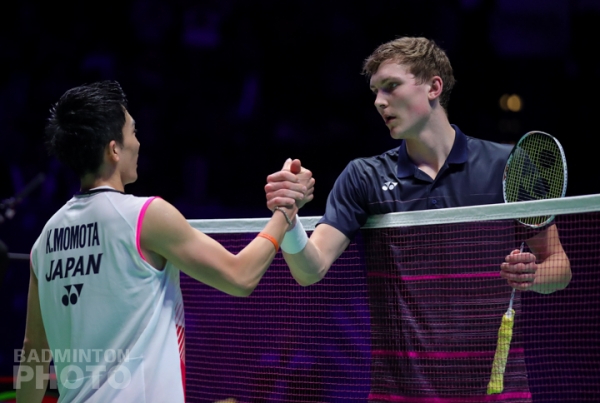
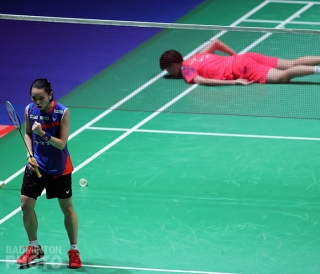
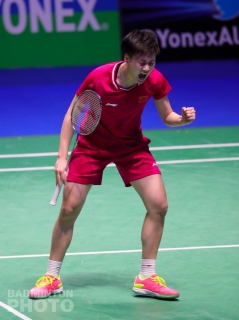
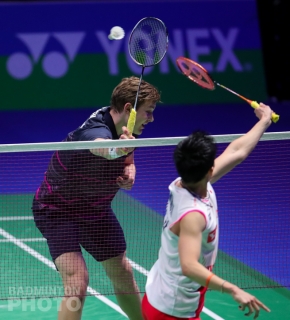
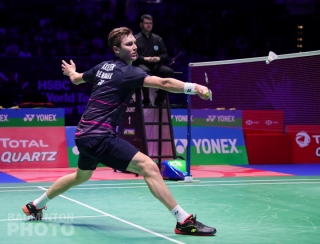
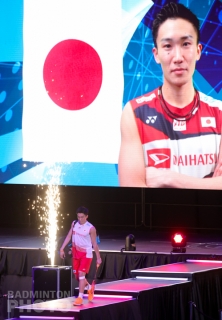
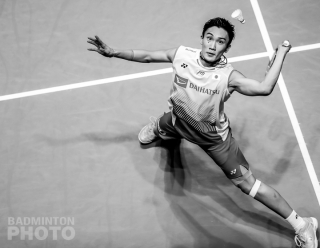



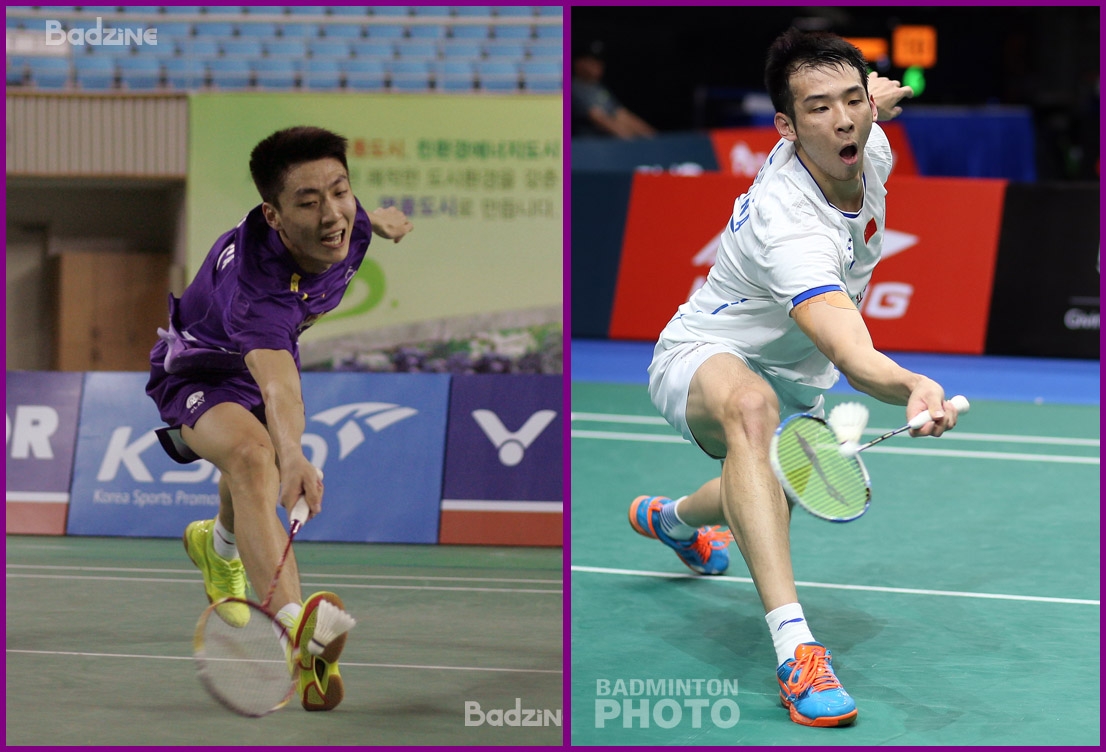
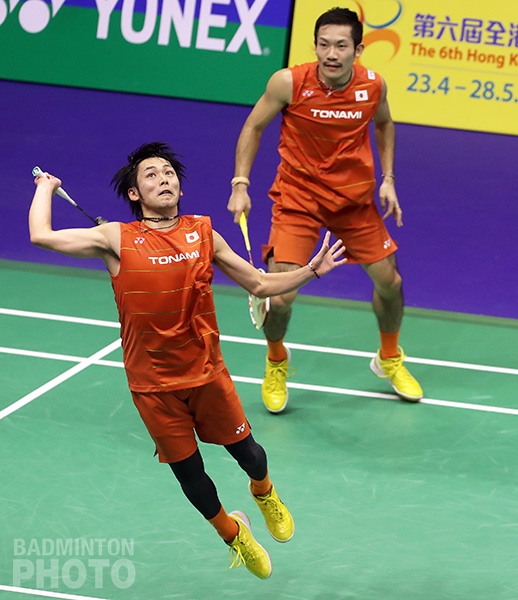
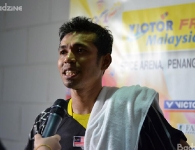
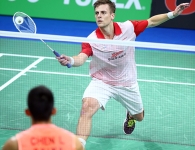

Leave a Reply